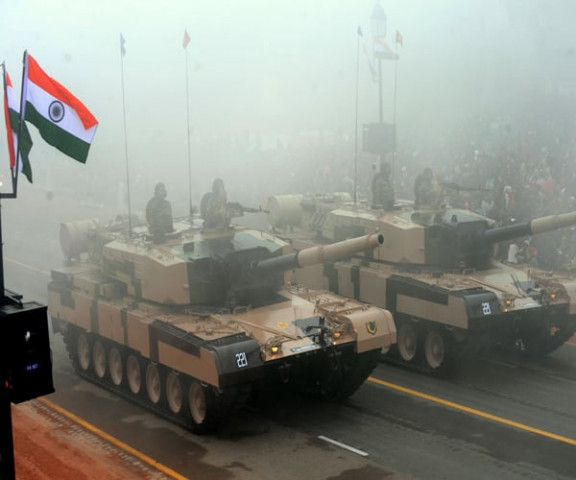India beefs up its military
In the long run, it will inevitably prompt Pakistan to raise its own military budget to keep up.

All of this seems to bode ill for any future normalisation process between India and Pakistan. If the budget is passed, a further militarisation of the Line of Control is a reasonable, if unwelcome, expectation. And no doubt, India is aware of Pakistan’s own security travails, and wants none of them to cross over. And in the long run, it will inevitably prompt Pakistan to raise its own military budget to keep up. Despite the ominous tones, that would be a mistake.
India’s economic growth has compelled it to seek a greater role in global politics, and it seeks to gain military clout that could reasonably correspond with its new economic and regional status. While India’s revisionist aims are one factor, another is its neighbour in the north. India’s greatest military and economic rival is not Pakistan, but China. China has aggressively asserted itself in the South China Sea, and has also begun to do the same in the Indian Ocean, a move that India sees as a threat. Despite the 14 per cent increase, India’s military budget is still less than a third of China’s and Indian officials feel that they need to catch up quick if they are to achieve any semblance of military parity.
While India’s defensive considerations may not be Pakistan-centric, they will inevitably be perceived as such this side of the Radcliffe Line. Pakistan’s own military disparity has already prompted its foray into acquiring tactical nuclear weapons, and India’s military expansion will only accelerate their production. Whatever India’s defensive considerations, the presence of more — and more lethal — arms in South Asia cannot be welcome.
Published in The Express Tribune, July 13th, 2014.
Like Opinion & Editorial on Facebook, follow @ETOpEd on Twitter to receive all updates on all our daily pieces.



















COMMENTS
Comments are moderated and generally will be posted if they are on-topic and not abusive.
For more information, please see our Comments FAQ